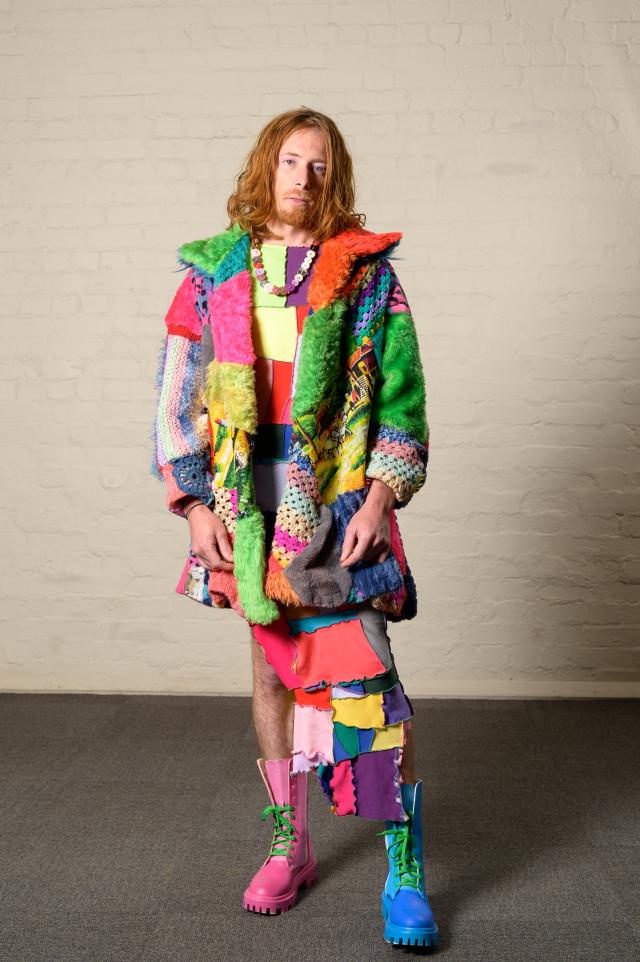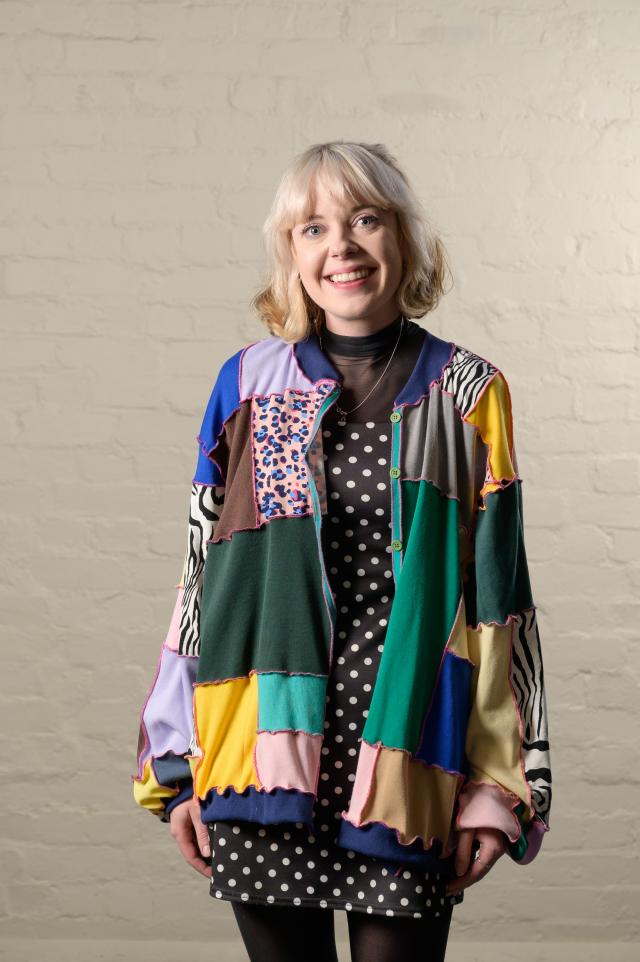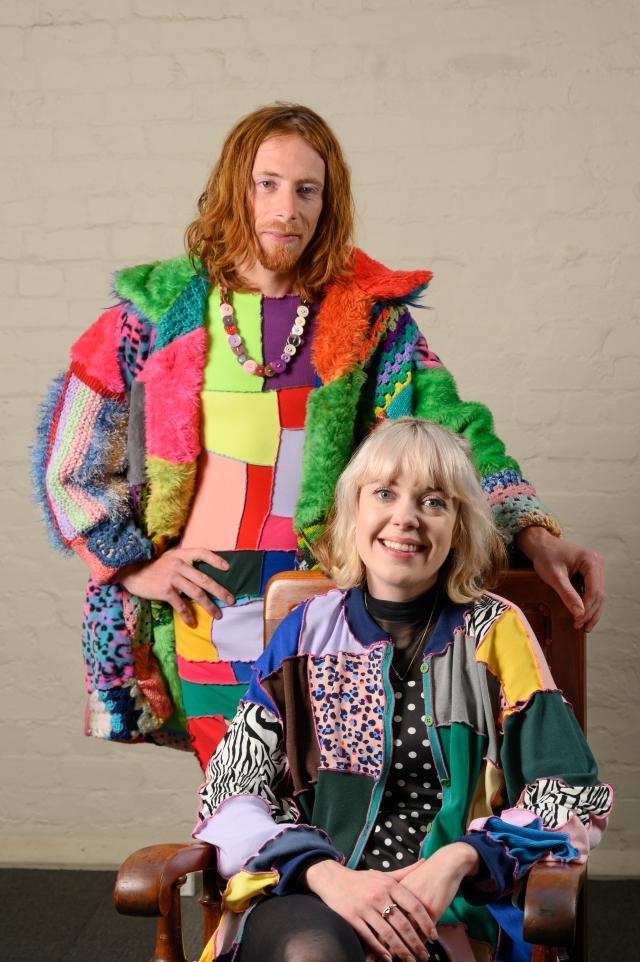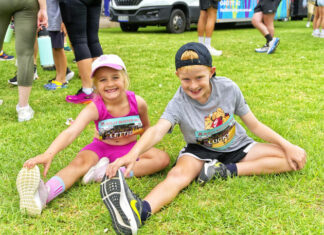Geelong fashion designer Emily Jane Rastas has been shortlisted for the We the Makers Sustainable Fashion Prize 2023. She talks with Jena Carr about her creative journey and what it’s like to be one of 20 designers in the running for the prize.
Belmont’s Emily Jane Rastas began her fashion journey at age 12 after watching her mother sew and decided to pursue it as a career.
“My mum used to make me clothes and costumes for book week, and I asked her to help me make a pair of blue overalls,” she said.
“I started making clothing when I was a teenager because I had very little confidence, I didn’t love how I looked, but clothing empowered me.
“When I made something that made me feel cool, different and unique, it gave me confidence that nothing else could.”
Emily said she could “do a bit of everything”, including makeup, clothing, and costumes, but she just needed to learn wig and hair styling.
“I studied fashion for a little bit at Royal Melbourne Institute of Technology University but then moved to Europe and I worked as a costume designer,” she said.
“I lived in Vienna for two years and then studied, working as a costume assistant in many productions.
“I was in Dublin for one year studying special effects and prosthetic makeup, and then I was in London for one year working in theatre, music videos, and movies doing costume and makeup.
“I came back to Australia, started my own label, injured my back, stopped everything for six months, and then started painting and making clothing again.”
Emily said she was honoured that her outfit Electric Design was shortlisted for the $10,000 We the Makers Sustainable Fashion Prize 2023 and that she didn’t expect to be selected.
“There were lots of different criteria that they asked for in the submission, and so I spent a really long time thinking about it,” she said.
“With part of the criteria being the future of fashion, I thought, well, the future of fashion is genderless, and I wanted to explore that.
“My view on it is you do you, and I’ll do me. I can’t comprehend treating someone badly based on who they choose to be if it doesn’t affect me.
“Empowering others and being as inclusive as I can is really important to me.”
Emily said she originally made a power suit for the competition that would be modelled by a “non-gender specific person” but didn’t like how it turned out.
“I’ve just come to accept that I’m much more of an intuitive designer,” she said.
“When I plan things out too much, the magic just doesn’t happen, but it feels better when I go with the flow and add things as I feel them.
“It’s definitely an internal battle, but I like to follow my patterns and then learn from them, and then you know, just deal with them and adapt to them rather than try and be different.
“I ended up creating this patchwork ensemble instead of the suit and I asked a straight male friend to model in this very feminine garment to explore gender-neutral fashion.”
Her final design took close to a week to complete and was made from second-hand fabrics and reusable materials.
“It took me six days and there were a few very late nights,” she said.
“All of the fabrics are collected second-hand, and I’m also using up the scraps from previous projects.
“I had really small bits of scrappy material, but I thought I could see if I could put them together.
“I went through the process of changing the colour threads to add different textures and colours, and then I made a woven necklace out of buttons that I also got from an opportunity shop.
“There are bits of faux fur, crochet from blankets, cut-up jumpers, and a bit of wool tapestry that reflects the history of Geelong and the wool museum.”
Emily said she tried to tackle gender stereotypes in the piece through her choice of colour and model and local artist Ehren Schloss.
“There’s one shoe that is blue and one shoe that is pink to subtly symbolise those gender colours,” she said.
“When I was taking these photos of my friend in the outfit (to submit to the competition), he was a little unsure and uncomfortable at first, but then he just got this confidence and power.
“We’ve got a really tight knit, awesome artistic community. We all just help each other and lift each other up.”
Emily said that throughout her experiences in different fields, she had seen a lot of waste that “weighed heavily” on her and was proud of the colourful and sustainable piece she created.
“Colour definitely brings me a lot of joy and creating brings the dopamine, so putting them together is always a good outcome,” she said.
“I can’t really comprehend creating or buying new fabrics when there’s already so much existing in the world.
“As a member of Geelong’s creative community, I have experienced firsthand the unwavering support, inclusivity, and kindness that flows through the vibrant network of artists and creators.”
She also manages her own fashion label Emipeli Design where she sells costumes, clothing, hand-painted shoes, accessories, original art prints, and “pretty much everything” she makes.
“I keep all of the great parts for my portfolio as I was taught really young to capture everything because if you don’t photograph it, it’s not worth making,” she said.
“I can see the full-circle moments, inspiration and lots of skills that I’ve worked with throughout my career that I can then incorporate into new things that I make.”
Emily’s shortlisted We the Makers Sustainable Fashion Prize outfit will be on display at the National Wool Museum from June 2 with the major winner announced the day before.











